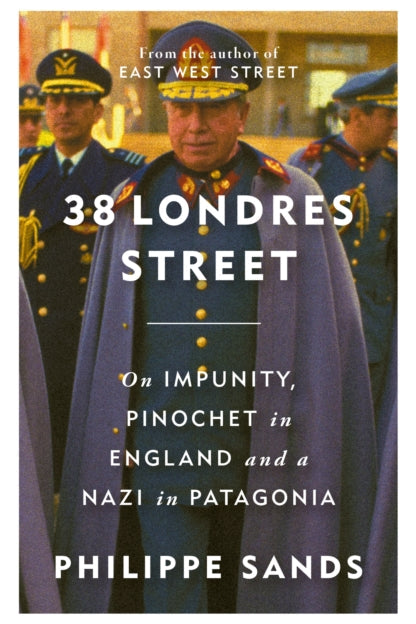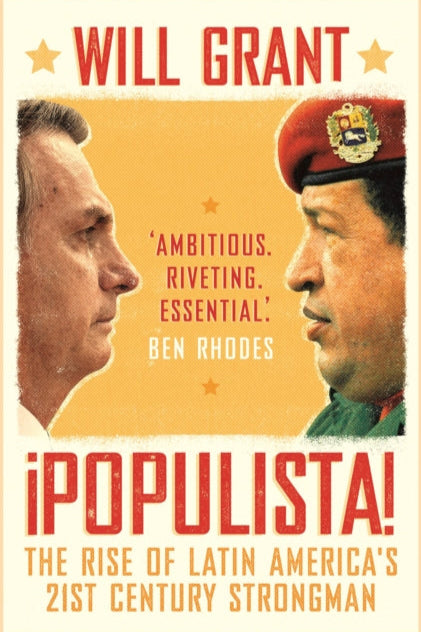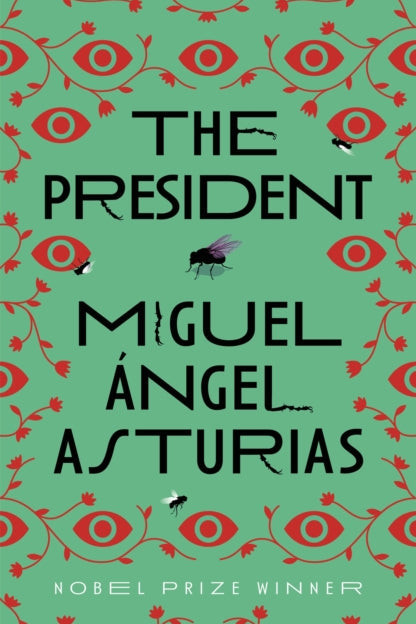Dictators
Explore the psychology, history and aftermath of dictatorship in this gripping collection. Architects of Terror by Paul Preston and 38 Londres Street by Philippe Sands unearth painful truths, while Populista charts the rise of Latin America’s modern autocrats. The Autumn of the Patriarch is Gabriel García Márquez’s haunting fictionalisation of despotism and The President by Miguel Asturias remains a foundational Latin American novel of tyranny. This is essential reading on power and its abuses.

38 Londres Street - Philippe Sands
On the run from justice at the end of the Second World War, Rauff crosses the ocean to southern Chile. He settles in Punta Arenas, Patagonia, managing a king crab cannery at the end of the world. But there are whispers about this discreet and self-possessed German - rumours of a second career with Pinochet's secret intelligence service, the dreaded DINA. In 1998, Pinochet is in a London medical clinic when the police enter his room and arrest him on charges of crimes against humanity and genocide. Philippe Sands is called to advise the former head of state on his claim to immunity, but will instead represent a human rights organisation against him. Years later, Sands makes a discovery while working on another book which reignites his interest in the case and leads to a decades-long investigation into Pinochet's crimes, his unexpected connection to Rauff and the former Nazi's possible connection to Chile's disappeared.

Populista - Will Grant
'A revolution is a struggle to the death between the future and the past.' For more than six decades, Fidel Castro's words have echoed through the politics of Latin America. His towering political influence still looms over the region today. The swing to the Left in Latin America, known as the 'Pink Tide', was the most important political movement in the Western Hemisphere in the 21st century. It involved some of the biggest, most colourful and most controversial characters in Latin America for decades, leaders who would leave an indelible mark on their nations and who were adored and reviled in equal measure. Yet within a decade and a half, it was all over. Today, this wave of populism has left the Americas in the hands of some of the most authoritarian and dangerous leaders since the military dictatorships of the 1970s.

Architects of Terror - Paul Preston
From the preeminent historian of 20th century Spain Paul Preston, Architects of Terror is a new history of how paranoia, conspiracy and anti-Semitism was used to justify the military coup of 1936 and enabled the construction of a dictatorship built on violence and persecution. It is the previously untold story of how antisemitic beliefs were weaponised to justify and propagate the Franco overthrow of liberal Spain. The Spanish military coup of 1936 was launched to overturn the social and economic reforms of the democratic Second Republic, and its educational and cultural challenges to the established order.

The Autumn of the Patriarch - Gabriel Garcia Marquez
As the citizens of an unnamed Caribbean nation creep through dusty corridors in search of their tyrannical leader, they cannot comprehend that the frail and withered man lying dead on the floor can be the self-styled General of the Universe. Their arrogant, manically violent leader, known for serving up traitors to dinner guests and drowning young children at sea, can surely not die the humiliating death of a mere mortal? Tracing the demands of a man whose egocentric excesses mask the loneliness of isolation and whose lies have become so ingrained that they are indistinguishable from truth, Márquez has created a fantastical portrait of despotism that rings with an air of reality.

The President - Miguel Asturias
The President tells the story of a ruthless dictator and his schemes to dispose of a political adversary in an unnamed country usually identified as Guatemala. Drawing on his experience as a journalist writing under repressive conditions, Miguel Angel Asturias provides a blazing indictment of totalitarian government and its damaging psychological effects on society - from the harvest of terror to cowardice, to sycophancy, to treachery and intrigue, and the total sacrifice of human values to lust for power.
